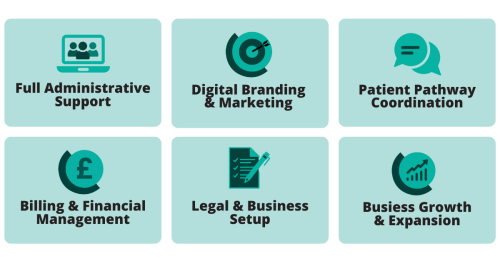At Medmin, we’re always looking for ways to support the growth of your private practice. That’s why we’re excited to announce our new partnership with Doctify. As part of this collaboration, Medmin will register consultants with Doctify completely free of charge.
Doctify is one of the UK’s leading patient review platforms, designed specifically for healthcare professionals. It enables patients to leave verified reviews and enables you to build a strong, trusted online presence – backed by the voices that matter most: your patients.
Why this matters: patient reviews aren’t just nice – they’re necessary
Patient reviews go beyond mere reputation – they are a compass for improvement, grounded in research. Here’s how they make a difference:
1. Feedback drives quality improvement
A 2020 study in BMJ Open found that hospitals prioritising patient feedback were more effective at quality enhancement. Patient experience is a core pillar of care, alongside safety and clinical outcomes.
2. Feedback fosters trust, accountability & change
Effective feedback systems ensure patients feel heard, valued, and empowered. Collecting feedback inclusively and analysing it with technology, helps clinicians translate insights into meaningful outcomes.
3. Qualitative insights complement quantitative measures
The NIHR Evidence review highlights that while surveys yield quantitative data, qualitative and unsolicited feedback – including online comments – often offer richer insights and should be embraced, not overlooked.
4. Positive feedback can spark real change
Furthermore, a 2023 PLOS One review found that positive patient feedback, not just complaints, can be a powerful motivator and agent of improvement – helping to boost morale and drive tangible service enhancements.
What’s in it for you with Doctify?
As a Medmin consultant, you’ll unlock benefits that go far beyond mere listings:
- Boosted visibility: A well-designed profile with authentic patient reviews helps prospective patients find and trust you.
- Quality insights: Doctify equips you to receive and manage both quantitative and qualitative feedback, giving you a complete picture.
- Peer endorsement – Showcase recommendations from respected colleagues, further strengthening your professional reputation.
- Practice improvement: Use patient reviews (including positive ones!) to create a continuous feedback loop – improving service and boosting patient satisfaction.
- Evidence-based strategy: You’re aligning with proven improvement methods – like promoting inclusivity, sharing feedback with care teams, and measuring via tools like NPS.
- Trust badges where it counts: Doctify scripts allow us to place your reviews and endorsements on landing pages, further optimising them for patient bookings and driving trust.
- Long-term growth: Happy patients and strong peer networks lead to more referrals, better retention, and a more resilient practice.
Doctify is just one part of the bigger picture
Joining Doctify is a valuable step in building your reputation – but at MedMin, it’s just the beginning.
We know that running a private practice isn’t just about collecting reviews. It’s about having the time, tools, and support to focus on what matters most: delivering exceptional care.
That’s why MedMin offers Total Practice Management – a comprehensive, end-to-end service designed to take the complexity out of private healthcare. We make private practice easy, with:

So while Doctify helps showcase your patient feedback, we’re here to help you build, run, and grow your practice from the ground up.
Whether you’re an established consultant in private practice or just starting out, Medmin is your partner in making private practice thrive – with no admin, more growth, and complete peace of mind.
Please note, for existing Medmin consultants: free Doctify registration is available to consultants paying full Medmin rates.
Make private practice easy.

